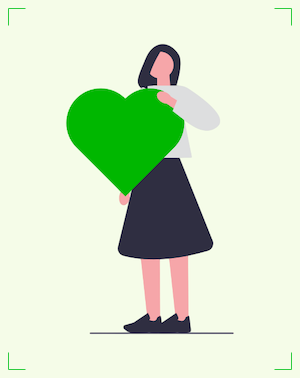
Hi, Best Friend aka Myself-Self-Compassion
“Self-compassion is a practice of goodwill, not good feelings… With self-compassion we mindfully accept that the moment is painful and embrace ourselves with kindness while acknowledging that imperfection is part of the shared human experience. “ - Neff (2019)
In our fast-paced society, we are often not allowed to take breaks and slow down. This causes us to absorb information in a rushed manner rather than reflectively. Society often sets unrealistic expectations, which cause people to feel stressed, defeated, and lonely. Self-compassion is a practice that allows an individual to be kind, open, and courageous. Self-compassion consists of mindfulness, common humanity, and self-kindness. Each time we face disappointment, anger, fear, or sadness, it is crucial to validate the existence of pain. Self-compassion can be practiced in many ways regardless of age, culture, and background.

Most people can practice self-compassion better by reaching out to the people they trust, as they notice their interconnectedness more. This allows some to notice common humanity. It makes one see that he, they, or she can bring comfort to others despite being in emotional pain.
Now, let’s see how we can practice self-compassion in our daily lives.
- Journaling: Try to journal your inner experiences by using three components of self-compassion. Starting with Mindfulness: Notice your feelings, physical sensations, breathing, emotions, and thoughts with full awareness and curiosity. Acknowledge and see from afar what you feel, think, or what you do non-judgmentally. For instance, “I feel angry/upset/impatient/etc. because of…” Followed by Common Humanity: Acknowledge, first and foremost, that you are not the only one experiencing suffering. For example, “Everybody feels anger/pain/jealousy at some point or another.” Lastly, Self-Kindness: This is giving yourself a hug in a warm, comforting, and safe space. You can write using second-person pronouns, for example, “You understand why you responded that way and it’s okay. Next week you can make up for it by stopping to listen/show that you care.”
- Realizing that mistakes are not fatal: Self-kindness and common humanity tap into two separate but related ideas: “A) we are human, B) so is everybody else, and that’s okay.” Instead of taking our thoughts, feelings, and behaviours as defining factors of who we are, we can let ourselves off the hook. Being human means reminding ourselves that perfection is not possible. This self-acceptance means to see ourselves in a bigger picture by not over-emphasizing on shortcomings, and rather by seeing the impermanence of thoughts, memories, feelings, and behaviours.
- Caring for yourself as well as others: By being empathetic towards ourselves, we may practice self-kindness even though you may think that it is awkward and that we do not deserve any compassion at first. We can try asking ourselves, “What would I say or do for a best friend who was in the same situation? Would I be willing to treat myself as a best friend?”
- Mindfulness: Harvard Healthbeat (2019) suggests that mindful practices such as mindful breathing, guided meditations, body scans, ‘dropping the anchor’, and a short ‘Self-Compassion Break’ allow us to become attuned to ourselves.
- Change how we speak to ourselves: Would we prefer a machine behind us, blasting noise at the back of our minds, or a supportive voice with a non-judgmental stance when we feel lost? Because we would all prefer the non-judgmental voice, we must learn to tap into our own self-talk methods. How would we address ourselves when we encounter huge blocks in our path? Try to use more “and” statements, for instance. Instead of beating ourselves up, we say, “I may have failed this time and it’s alright, I can try again.”
- External validations are insignificant: Choosing not to tie our happiness to outside influences can thus be an act of self-kindness. Self-affirmation is important because it reflects our inner resilience. By speaking to ourselves in a mirror or just shortly before bedtime, it brings us hope and inner happiness. Here are some affirmations that can be used daily:
- I deserve compassion, tenderness, and empathy from myself.
-Every day is a new opportunity.
-My mistakes are evidence of my own growth and learning.
-It’s okay to forgive myself.
Good job reading till here. Give yourself a chance at the life that you want. May we be compassionate and brave to face life challenges. We wish you all the best in trying out self-compassion.
Feel free to reach out to us for appointments and more experiential, powerful moments.
